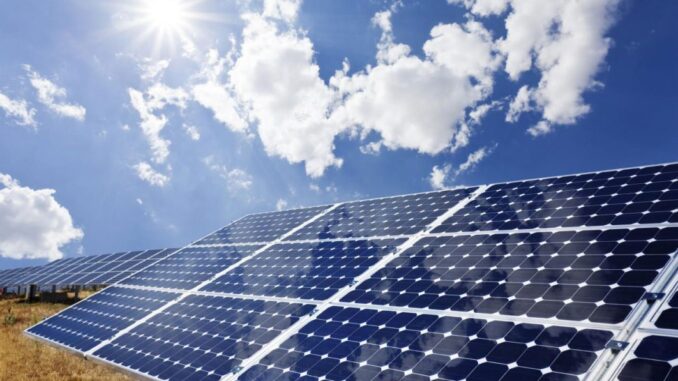
About this time last year, it was Earth day’s 50th anniversary in the middle of a global pandemic with over 2.5million cases confirmed globally as of then.
365 days later, the whole world is still in the grips of the virus – 142,964,759 cases have been confirmed globally with over 3million deaths – according to Johns Hopkins University coronavirus resource centre. Even with variants of the virus, the battle is recording visible results of substantial success especially with the various vaccines and extent of coverage. It is therefore an opportune time to not lose focus of the other ills that threaten Mother Earth.
According to a New York Times 2019 article, the world is being brought ‘dangerously close’ to irreversible change with worsening global climate crisis each passing year. Citing examples of a cascade of calamities like devastating fires in California, persistent drought in the Southwest, flooding in Europe and Africa, and a heatwave in Greenland, the article paints a gloomy picture of an accelerating climate change. “Things are getting worse…It’s more urgent than ever to proceed with mitigation,” noted Petteri Taalas, Secretary-General of the World Meteorological Organization.
Commemorated annually on April 22, the theme for this year’s Earth Day is Restore Our Earth. The day serves as a platform for all stakeholders to create awareness and collaborate on critical issues including global warming, pollution, deforestation, atmospheric and marine pollution, species extinction, climate change, drought, desertification, improper disposal of solid and chemical waste, Greenhouse gas emissions (which are more than 50 per cent higher today than in 1990), among others – as they pose a major threat to Mother Earth.
In addition to a global pandemic, we are no doubt in the midst of an ecosystem crisis that requires urgent and ambitious collective action. In a paper titled, “The Ecological Crisis and the Principle of Relationality in African Philosophy,” Delta State University don Mark OmorovieIkeke argue that ecological crisis cannot be solved when humans continue to see the earth as an object for conquest and exploitation.
Unfortunately, in many parts of the world, this year’s Earth Day and the focal theme to Restore Our Earth appeared to have gone unnoticed as awareness about the Mother Earth crisis is still deficient in many quarters. For instance, in Nigeria, environmental and climate literacy is at an abysmally low level perhaps because people have seemingly bigger daily challenges. However, there seems to be a global consensus regarding the burning need to restore our earth if we are to survive as a species. But there is no single solution to the quest for Earth’s restoration. We must implement a whole gamut of environmental projects worldwide, and quickly scale up the most effective approaches. This year’s theme focuses on natural processes, emerging green technologies, and innovative thinking that can restore the world’s ecosystems. Projects like plastic pollution prevention, awareness and education, resource management and zero-waste, renewable energy, etc. are taking centre stage.
With rising energy costs and the unequivocal fact about global warming, there is a quest for less expensive and more environmentally friendly ways of accessing energy. Options like geothermal heat, solar power, biofuels, wind power, and nuclear energy are on the table – as they contribute immensely to the repair and restoration of those damaged natural resources that are so crucial to our present well-being and our future. For instance, Solar power is one of the more accessible and affordable ways for the average person to join the battle of sustaining the earth’s atmosphere, and Nigeria possesses the economic and environmental advantage to be a major player in this sector – with over 2,600 hours of sunlight per year. Thankfully, Nigeria has launched a series of interventions in that direction. Primary among these interventions is the quest to provide electricity through renewable energy sources, especially solar power, to its citizens under the Rural Electrification Agency.
Diamond Development Initiatives (DDI), a not-for-profit development service provider, with support from U.S. African Development Foundation (USADF) and All On, is proud to have championed the cause of empowering Nigerian renewable energy companies in the provision of sustainable, reliable, and affordable power to underserved and unserved communities across Nigeria, through the USADF’s Off-Grid Energy Challenge Initiative. Since 2016, over 40 off-grid energy companies have been supported and scaled up to accelerate the use of proven off-grid energy technologies to reach communities not currently covered by existing grids. DDI provides the technical support and due diligence exercises, including monitoring and oversight functions to these Nigerian-owned and operated small and medium enterprises across Nigeria – contributing to the overall goal of improving energy access through off-grid energy solutions spanning solar, wind, hydro, biomass, and gas technologies.
On this 51st anniversary of World Earth Day, DDI celebrates all its donors, partners, and grantees while calling for a renewed commitment of all stakeholders to expand the scope of its renewable energy coverage, as a way of contributing to the restoration of our Earth for the benefit of humankind. Above all, DDI is calling for everyone to take responsibility in protecting the earth – our home and avoid the risk of creating the kind of earth that cannot sustain us and generations yet unborn. Happy 51st Mother Earth Day!
Ihanza, a Development Communications Specialist, writes from Abuja.
END

Be the first to comment